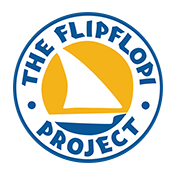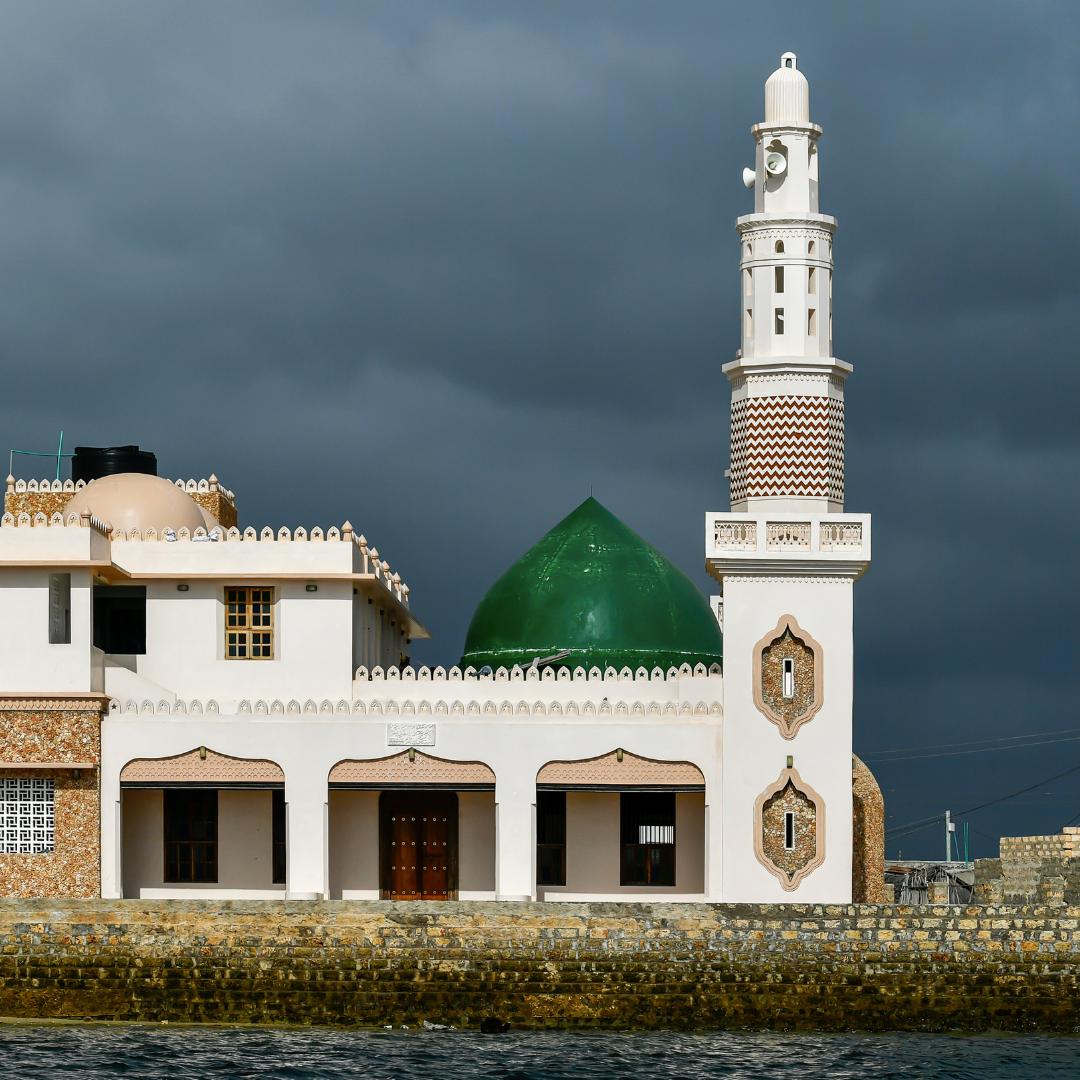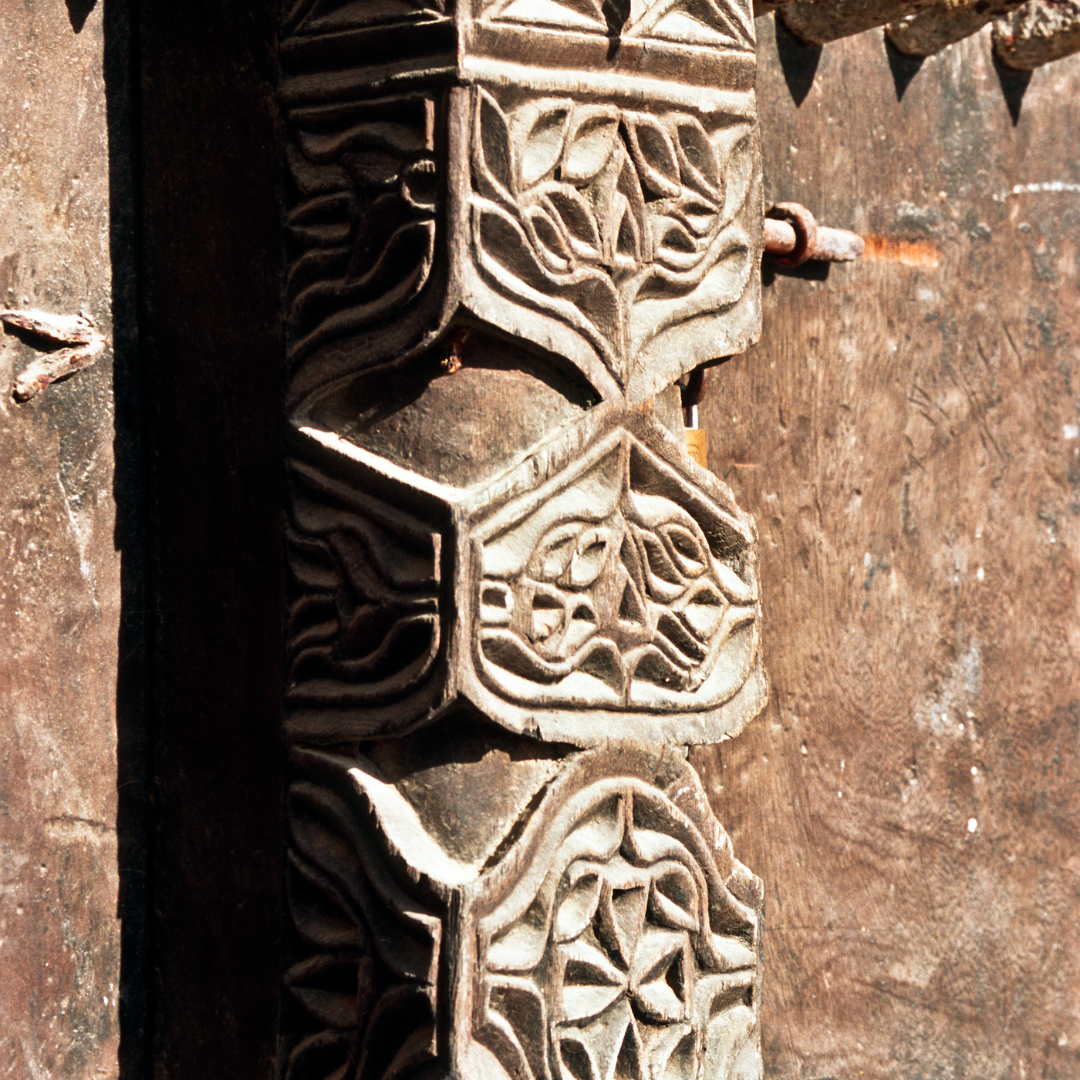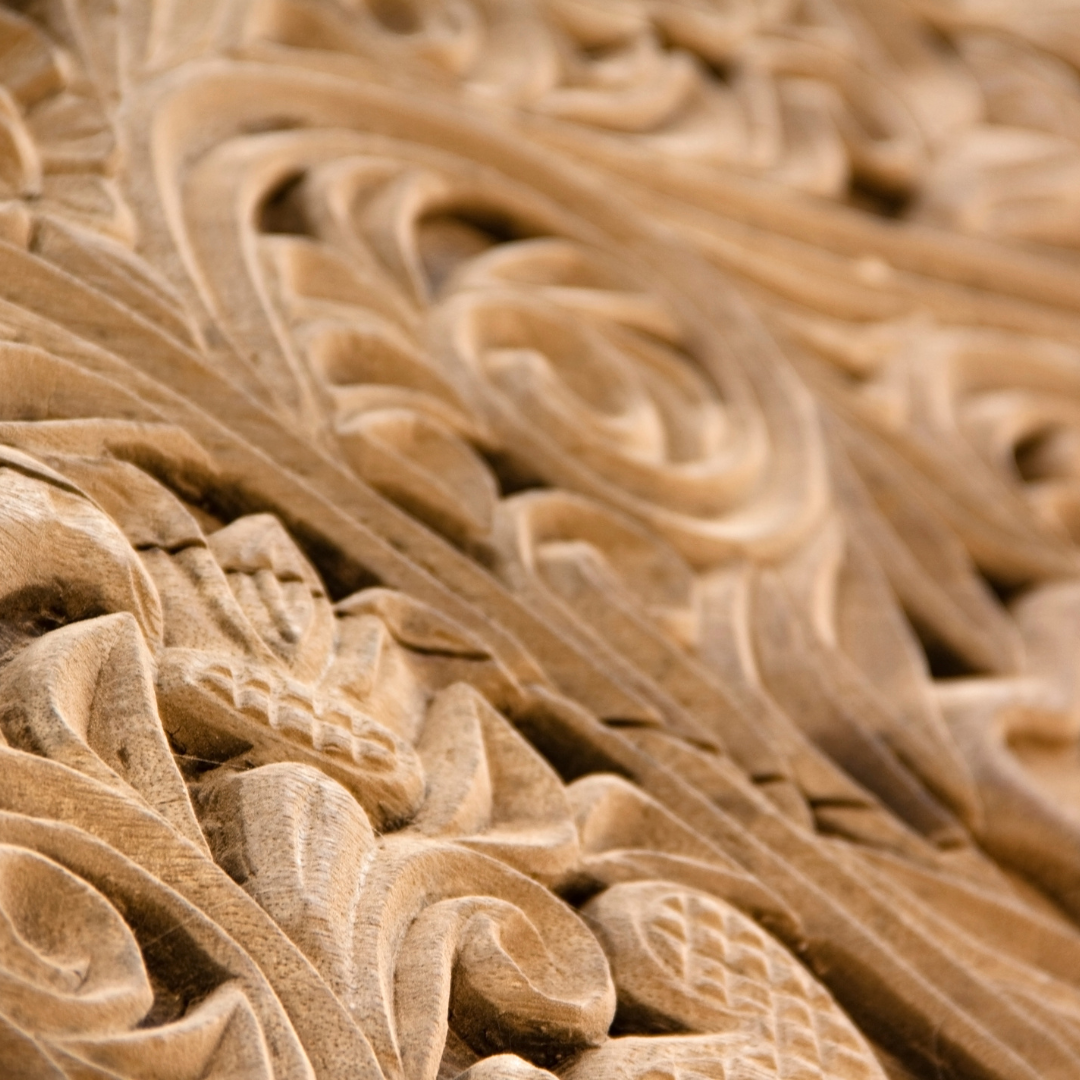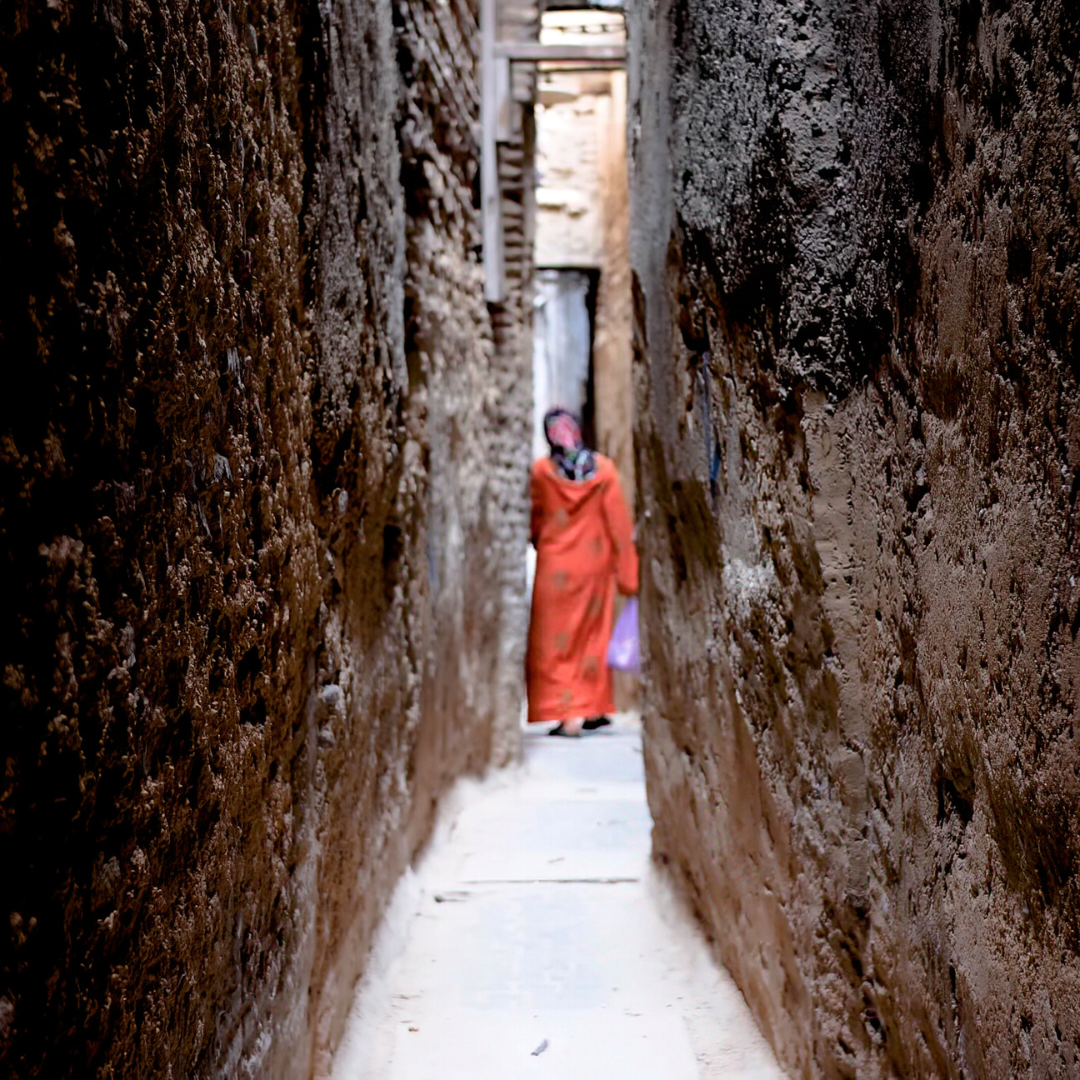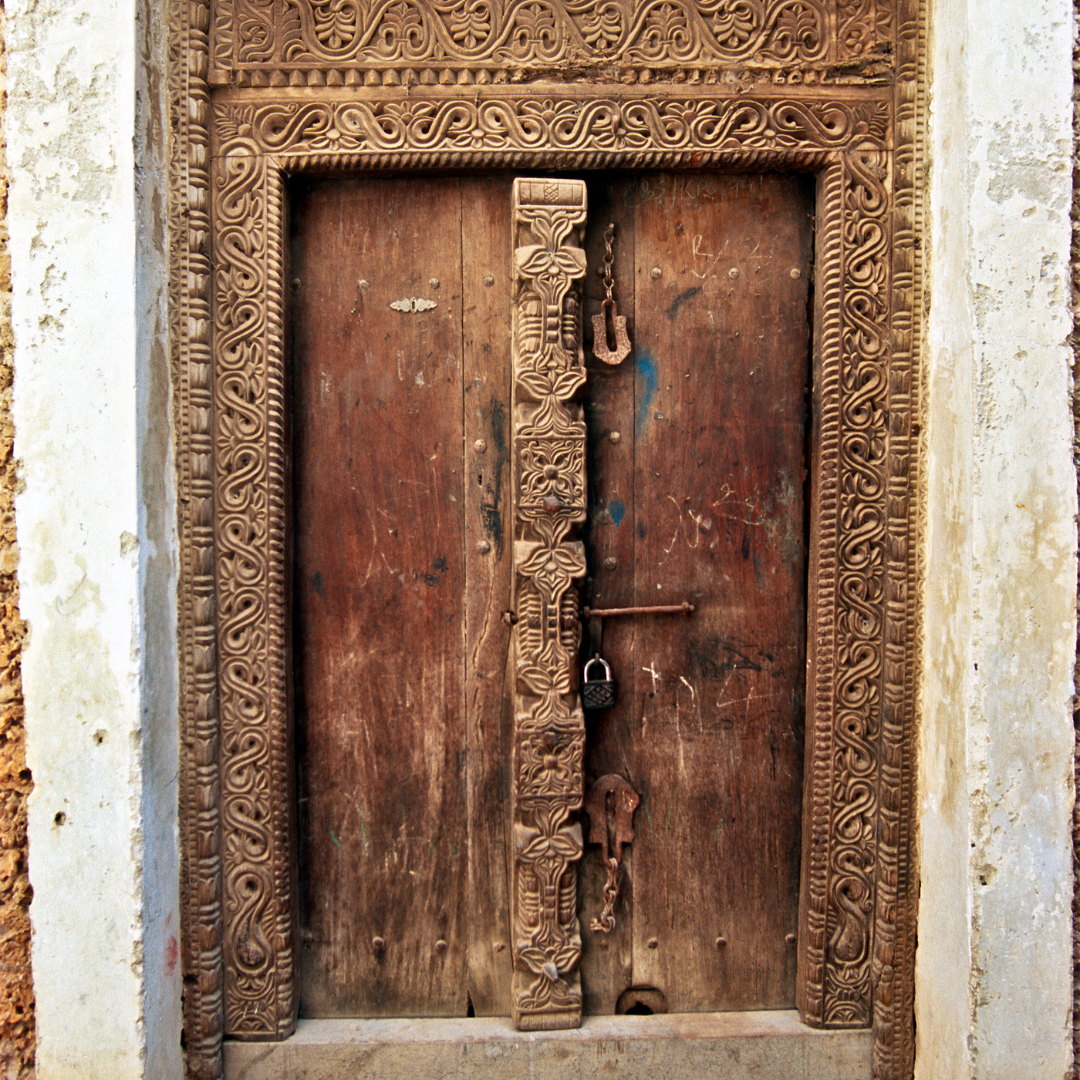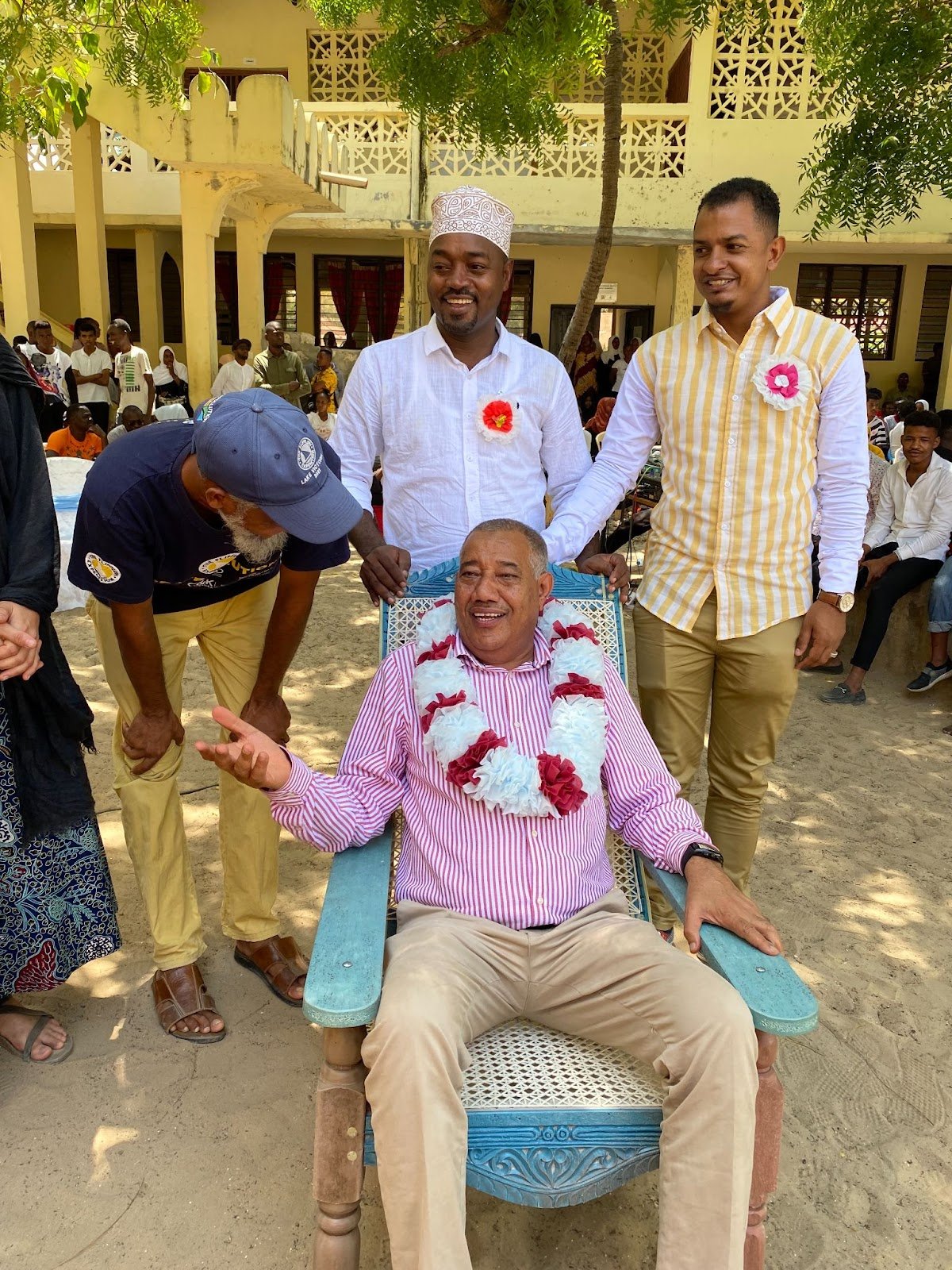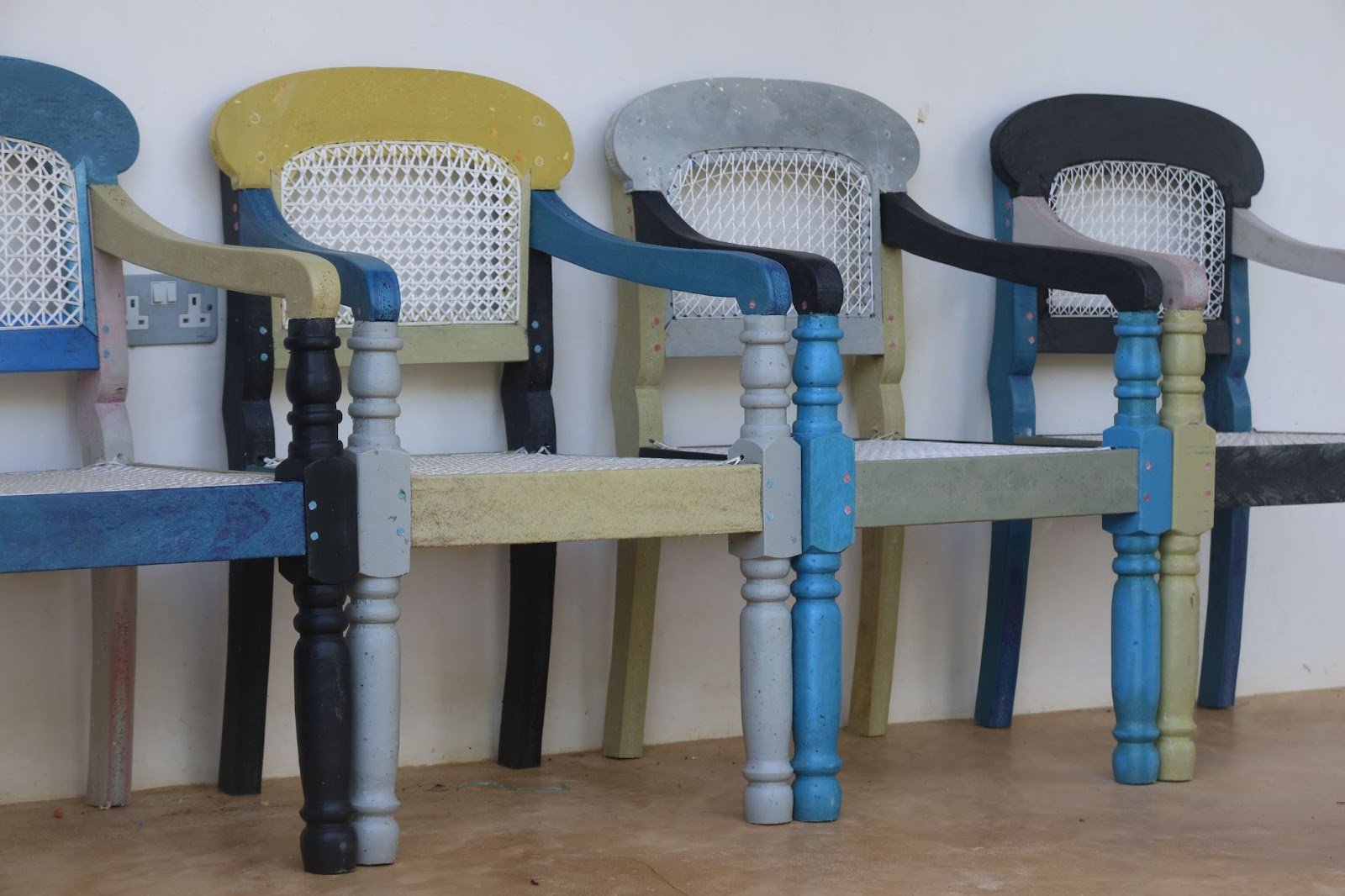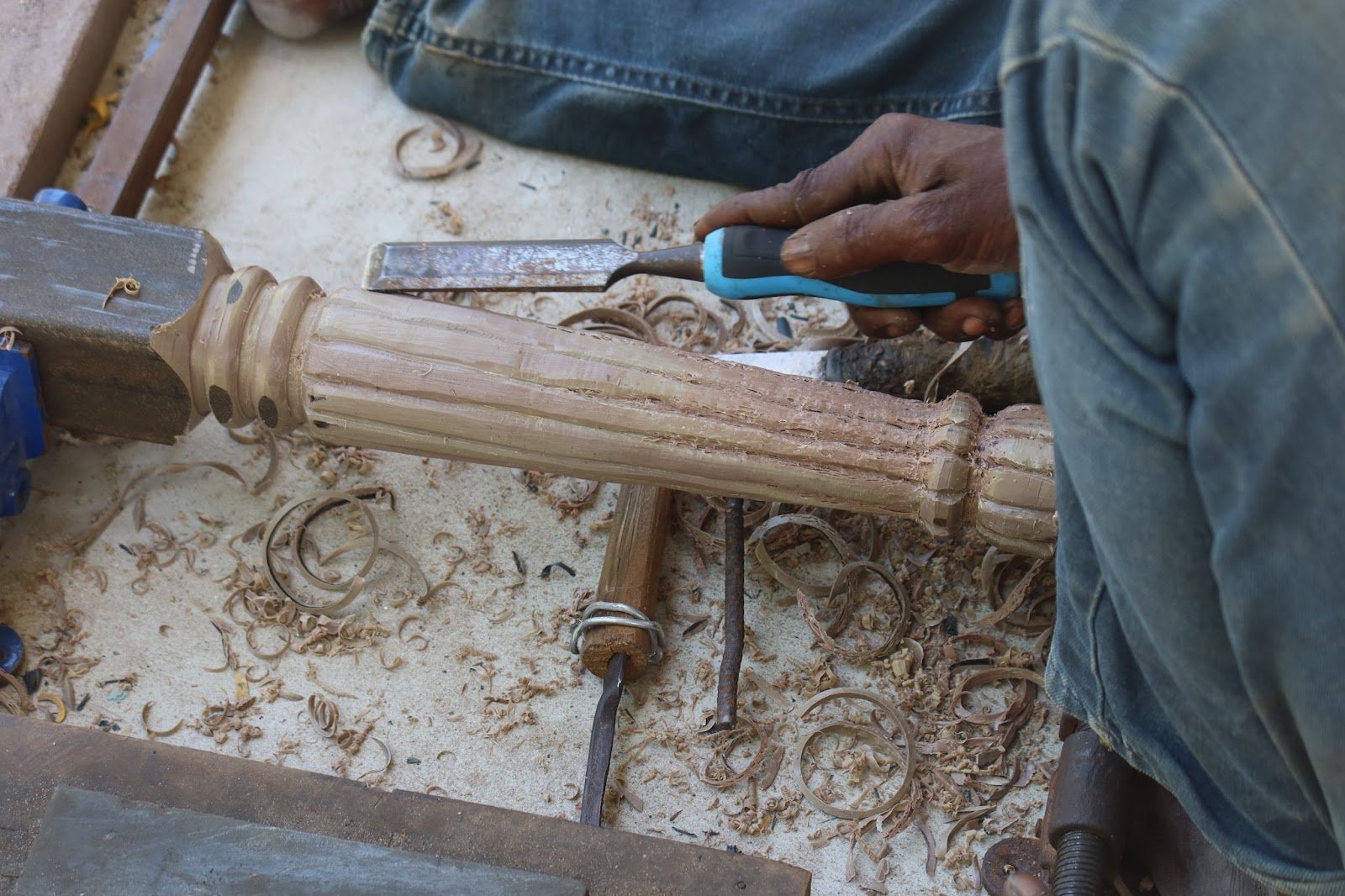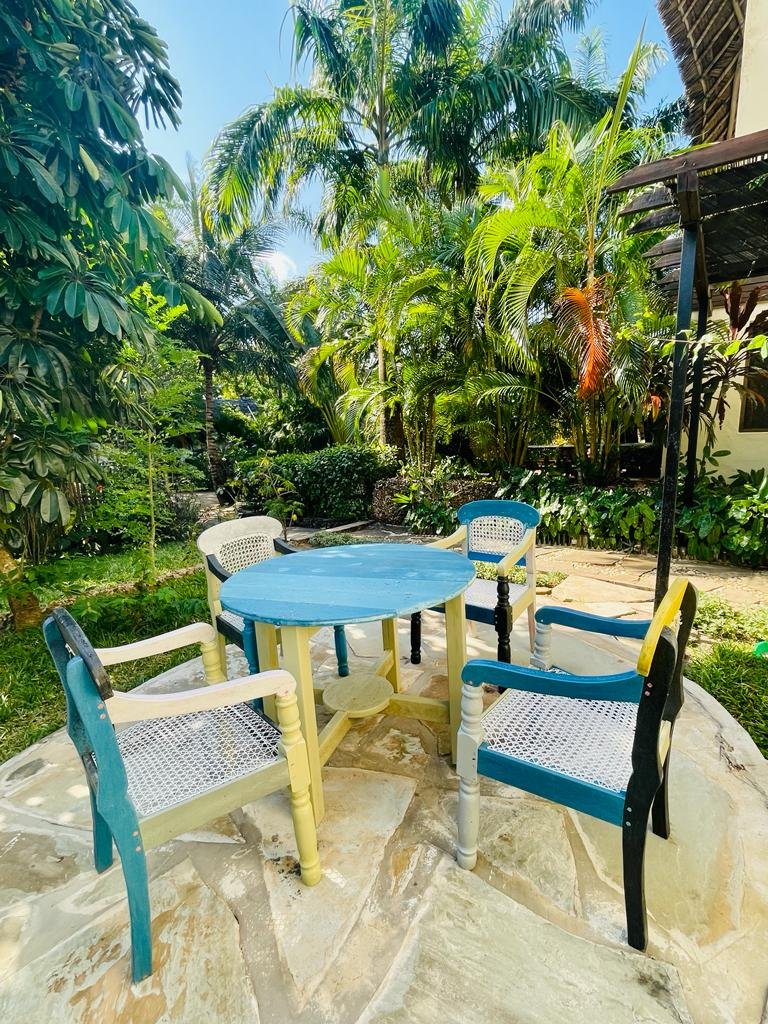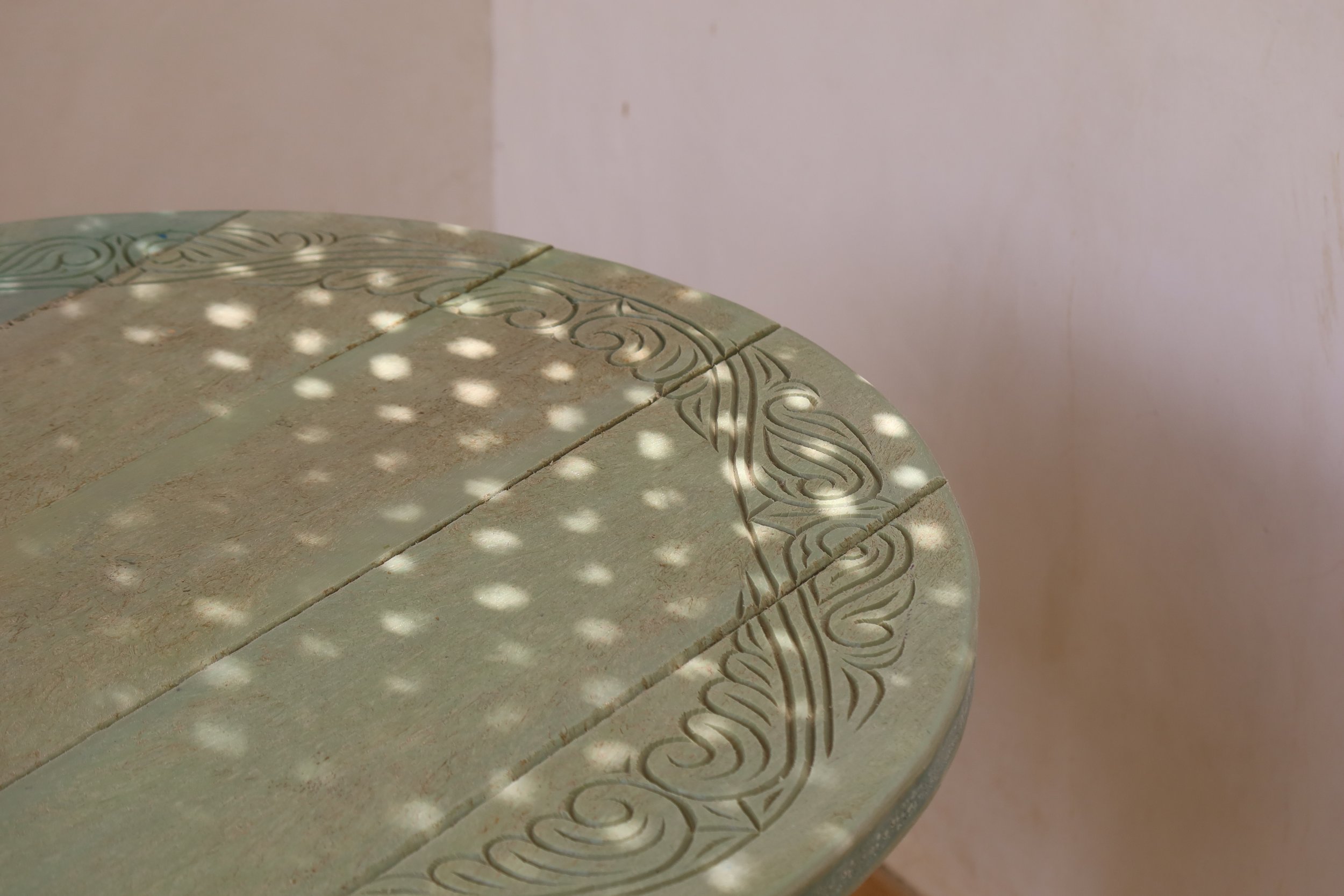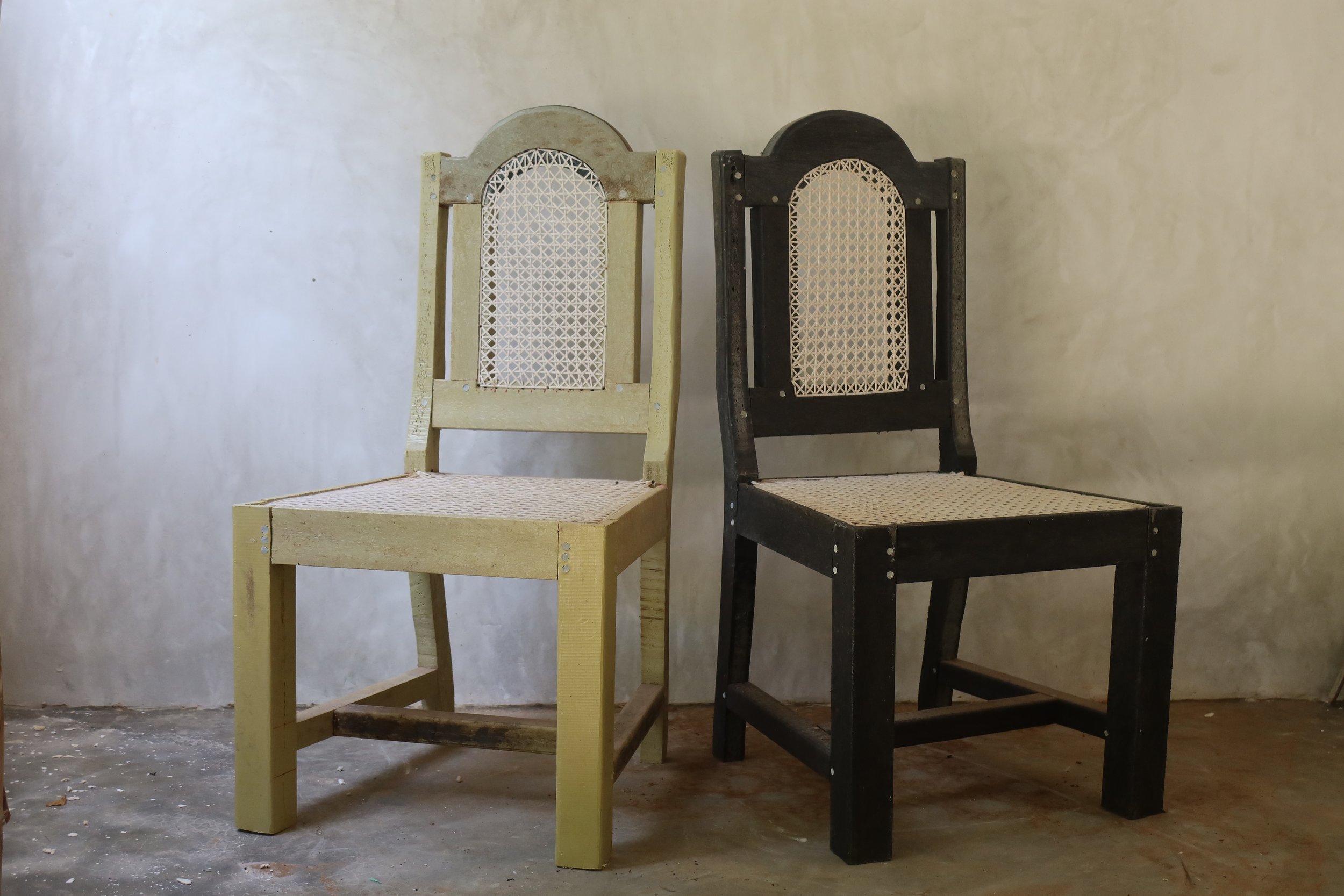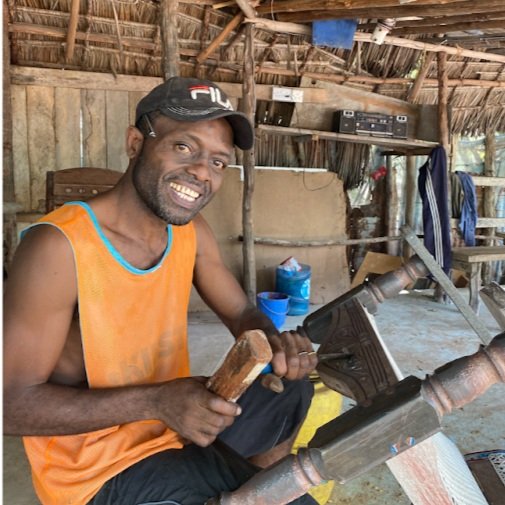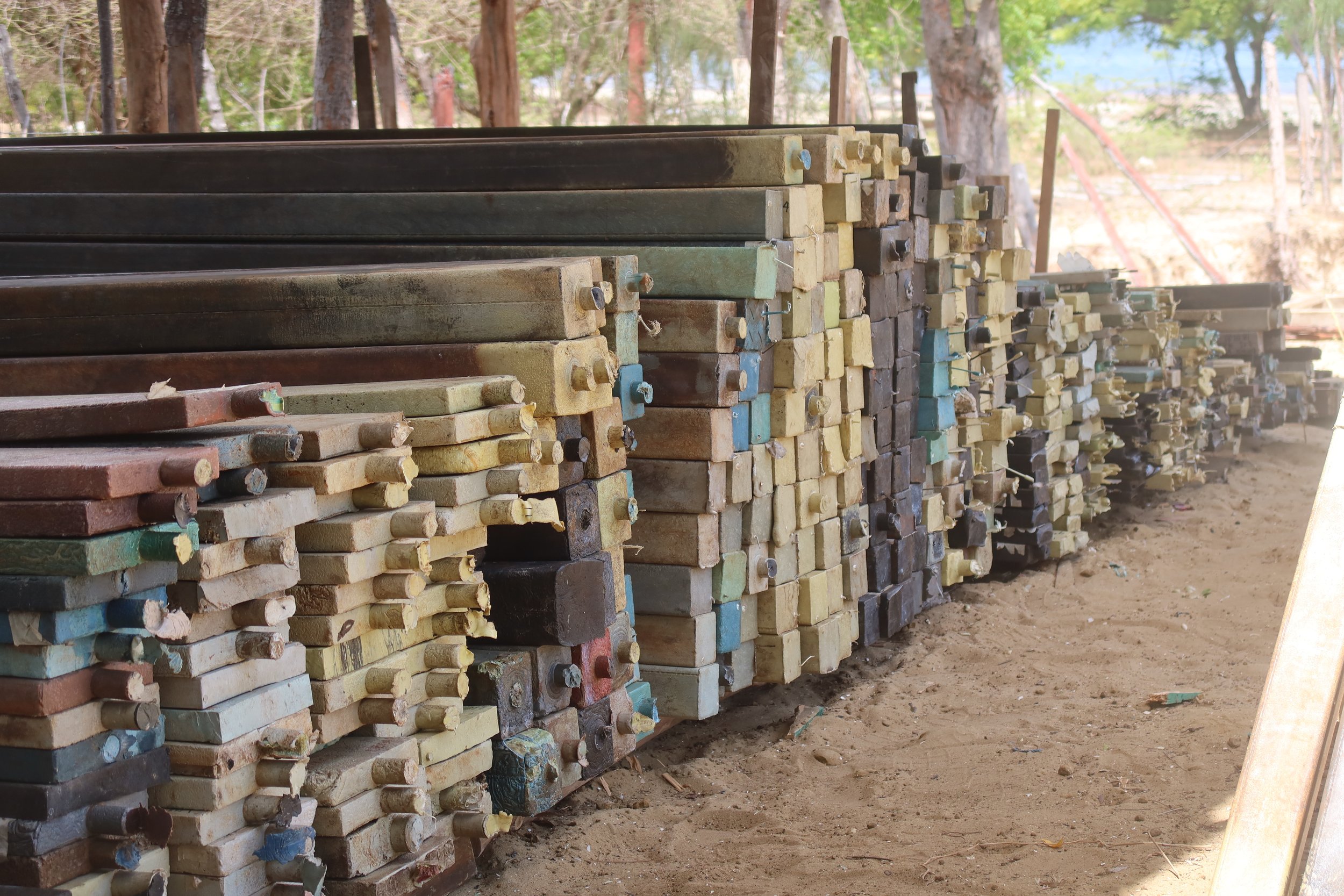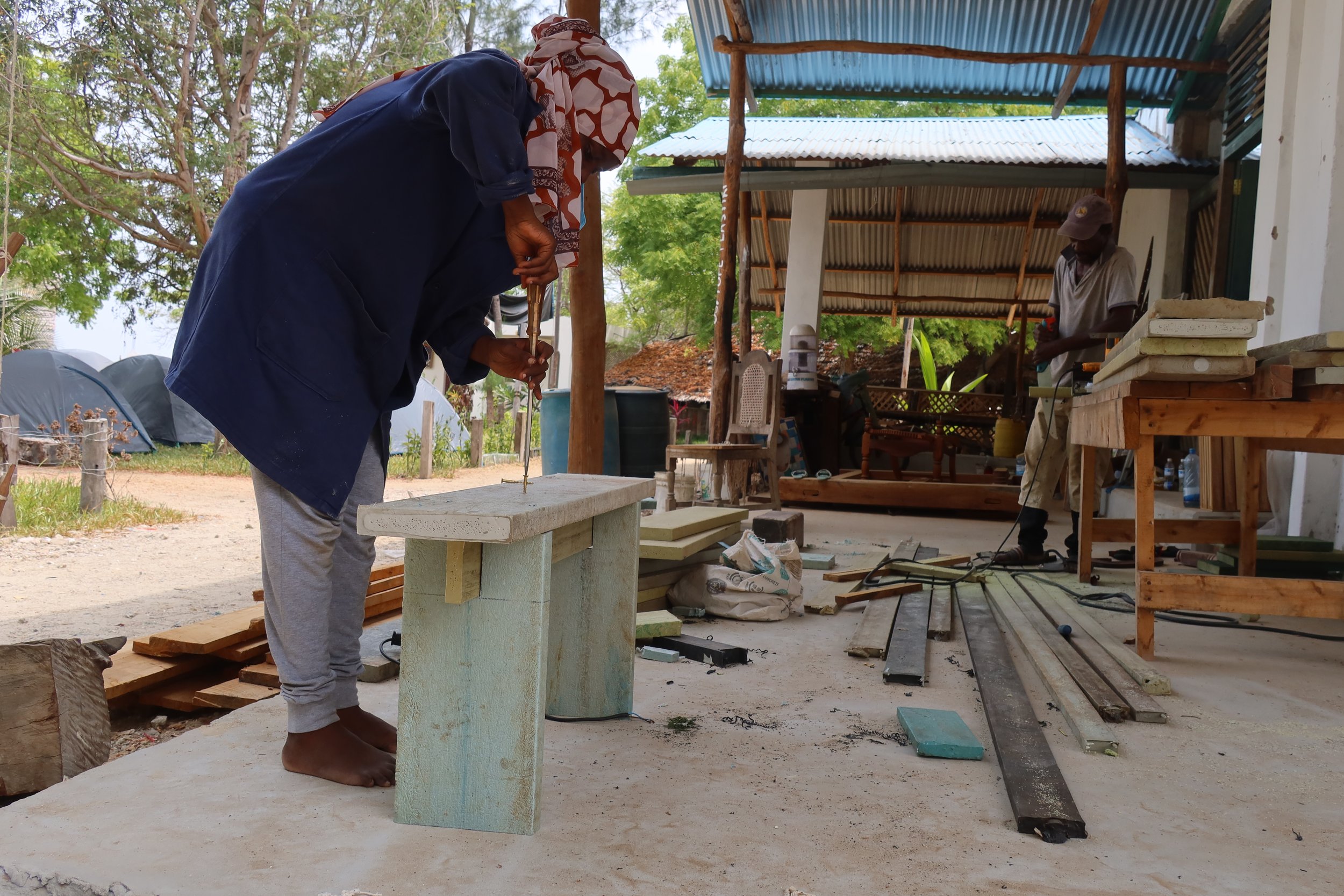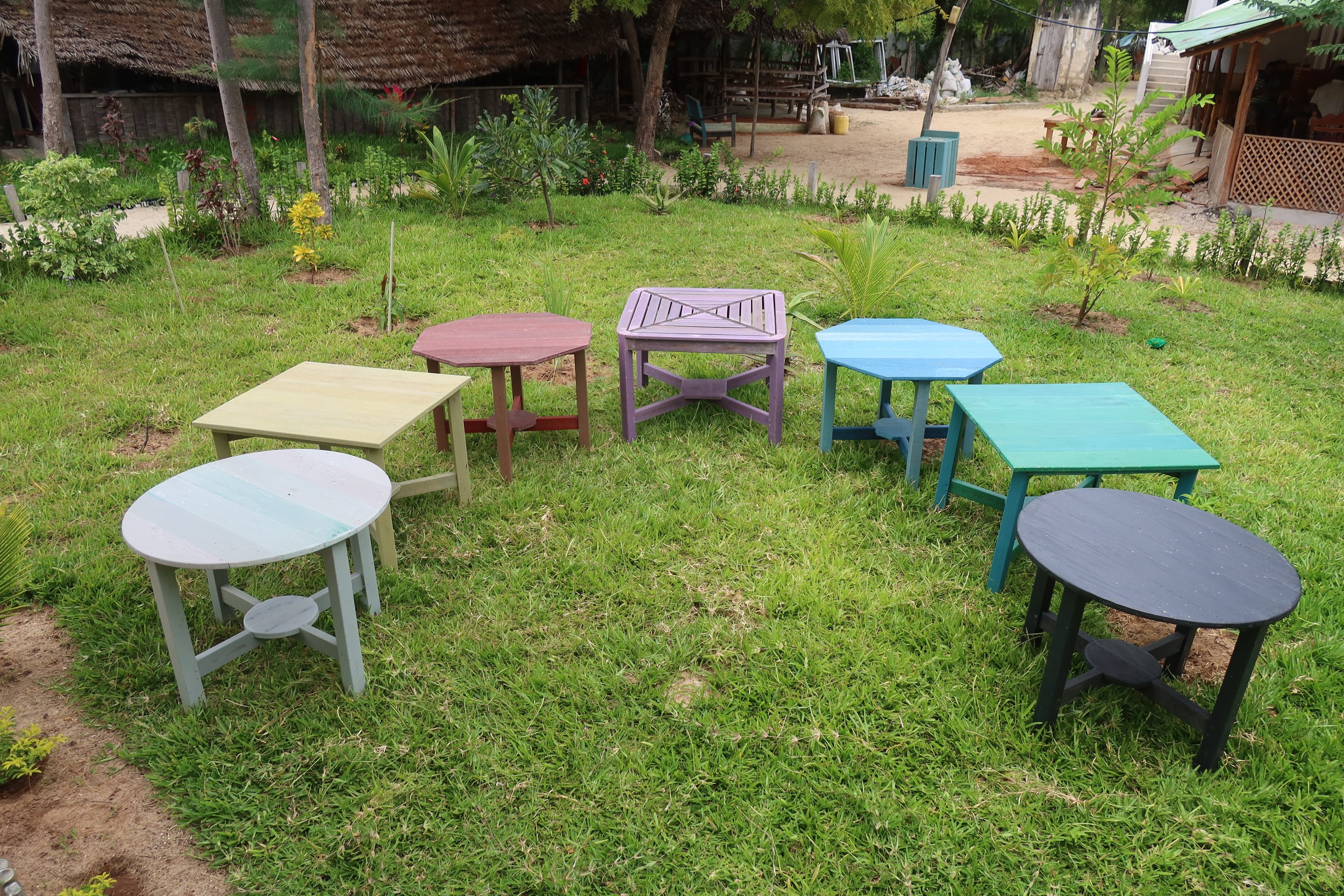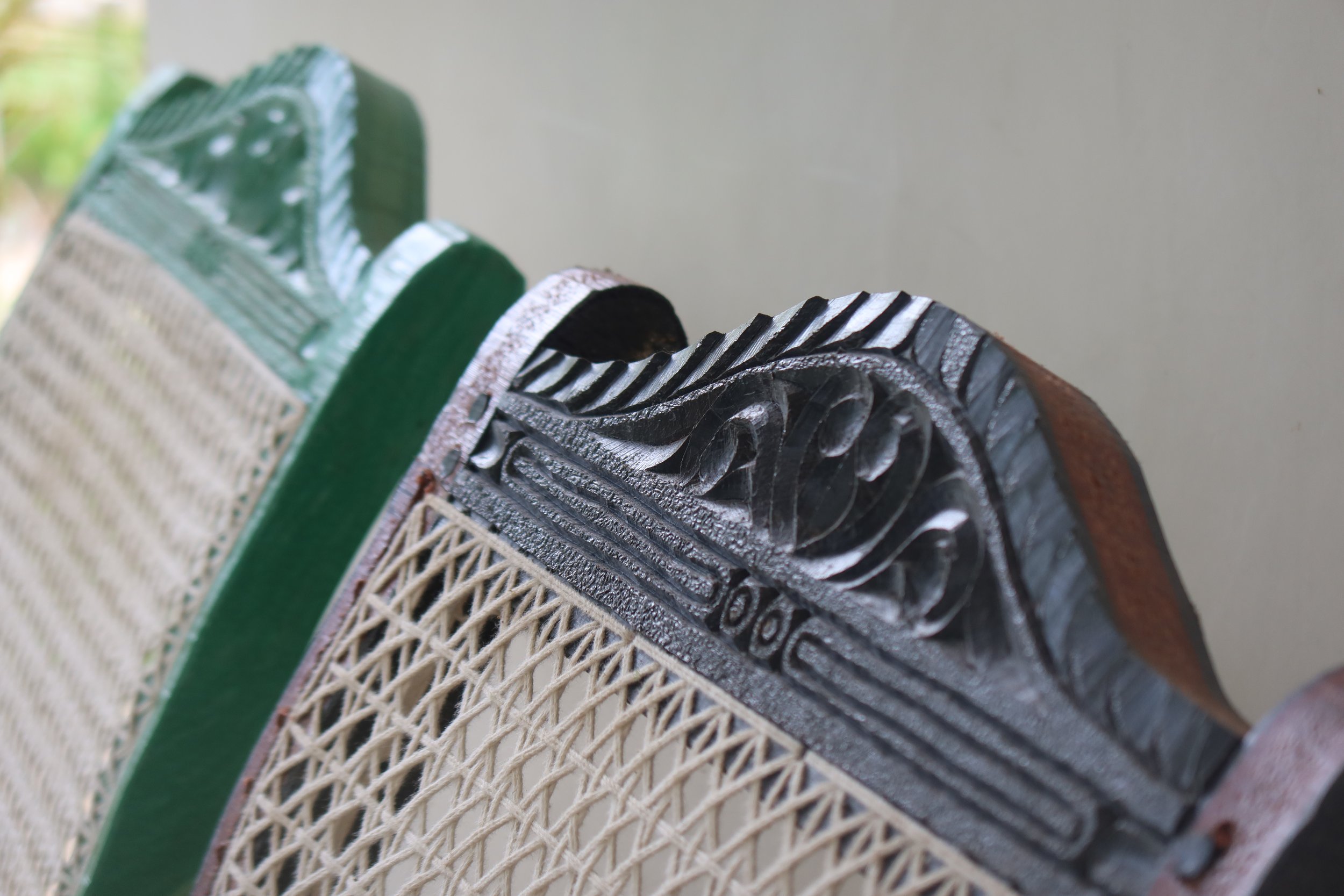Creating innovative solutions to tackle plastic pollution whilst preserving Swahili heritage
Lamu Old Town, home to the Flipflopi, is the oldest and best preserved Swahili settlement in East Africa. Built on coral rocks, mangrove timber and characterised by its narrow streets and sophisticated wooden carvings so much of this island has withstood the wave of modernisation but, like many other places, Lamu grapples with preserving its unique heritage.
At its zenith, Lamu was a melting pot of spice traders, African kings, Arab sultans, Portuguese, American and European sailors who influenced some of these intricate designs that are found in the architecture, furniture and dhow boats dating back as far as the 12th century.
Preserving Lamu’s heritage, a fusion of many early cultures, is at the heart of what we do. Amongst one of the more revered heritage furniture pieces is the ‘Kiti Cha Enzi’ also known as the ‘Chair of Power’ which has existed for more than 500 years and served the purpose of seating powerful and wealthy people.
The ‘Kiti Cha Enzi’ is still commonly used in official gatherings and ceremonies to seat dignitaries, while the more commonly used ‘Jauri Chair’, loved by local Lamuians and the tourism industry across the Swahili Coast has become a well known symbol of Lamu Heritage.
With that in mind, it was our obvious first choice to replicate the exact same model but in recycled plastics. Our Jauri chairs have been a favourite and one has a permanent place in the Lamu County Governor's office to welcome his official visitors and tell the timeless story of Lamu that we are trying to protect but this time using the very material that threatens our heritage and environment - waste plastics!
After successfully building and sailing the world's first traditional sailing dhow, the Flipflopi, using 9 tonnes of plastic ‘waste’ recovered from Kenyan beaches, we have now also set off on a mission to create more heritage products such as chairs, doors and tables and boats of course! Thanks again to our SMEP Program, we have had the financial support to research and develop an entire new line of products made from plastics collected by our local community.
We’re lucky to have our co-founder, Ali Skanda, a renowned traditional carpenter’s guidance on recreating heritage pieces using recycled plastic lumber, working alongside our Head of Design, Katharina Elleke.
In the last 15 months, we’ve recovered over 200,000kg of plastic waste from the Lamu Archipelago and of that we’ve extruded more than 33,000kg of plastic into lumber that’s used to build furniture and boats.
Through our furniture pieces, we are not only preserving our heritage but we’re turning a problematic material in abundance into being part of the solution while at the same time training young and keen craftsmen to master age old skills in carpentry and boatbuilding but now using recycled plastics , including some of Lamus first female carpenters and boat builders.
As word gets out and demand grows, we hope to develop this as a standalone not-for-profit small enterprise that can generate revenue which can be redirected and support our ultimate mission of ending plastic pollution…
